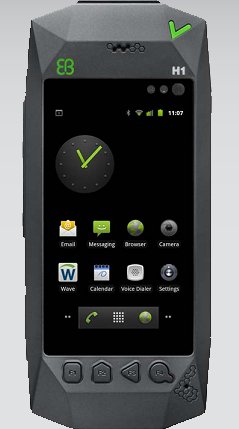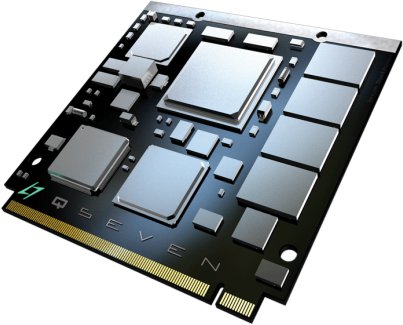Advantech announced the PCM-C3500 Series single board computers (SBC) powered by TI OMAP3503 or OMAP3530 processors with 128 to 256 MB SDRAM and 1 to 2 GB Flash (optional) . These heatsink-free boards are targeted for various low-power applications in industrial control, HMI/kiosk, medical, and portable applications.The boards will run Windows CE 6.0 (default), Embedded Linux 2.6 and Android 2.2. Here are the specifications for PCM-C3500 SBC: CPU – PCM-C3530: TI OMAP3530 @ 600 MHz / PCM-C3503: TI OMAP3503 @ 600 MHz DSP – Built-in 430-MHz TMS320C64x+™ DSP Core (PCM-C3530 only) 2D/3D Accelerators – OpenGLES 1.1 and 2.0, OpenVG1.0 (PCM-C3530 only) OS – WinCE6.0 English professional version as default, and Linux DRAM – PCM-C3530: 256 MB, PCM-C3503: 128 MB (Optional: 256 MB) Onboard Flash – PCM-C3530: Default 2 GB, (Optional: 0 GB, 1 GB) /PCM-C3503: Default 0 GB, (Optional: 1 GB, 2 GB) RTC Watchdog Power Management – Standard, idle […]
Embedded Systems Conference Boston 2011 Sessions Schedule
ESC Boston 2011 will take place on the 26-29 September 2011, four days of hands-on training, educational sessions and an interactive exhibit hall. There are 5 programs during the event: ESC Boston – Embedded software development tutorials for Android, Linux, microprocessors, QA, C programming, etc… DesignCon East – Hardware tutorials, e.g. SDRAM debugging, hardware encryption… DesignMED – Embedded systems development for embedded medical devices. Designing with LEDs! – LED hardware and drivers. DesignDays – Embedded systems sessions mainly presented by semiconductor companies and hands-on tutorials on specific platforms such as Beagleboard or TI MSP430 Chronos Wireless Watch. There are simply too many sessions (over 170) to list them all here. So I’ll selected a few among ESC Boston and DesignDays that look particularly interesting: Android Jump Start (Monday 26 – 8:00 – 17:00) by William Gatliff (Consultant, Freelance) and Karim Yaghmour (CEO, Opersys Inc.) . The features that make Android a great cell […]
Linaro 11.08 Release with Linux Kernel 3.0.3
Linaro has just released version 11.08 based on Linux Kernel 3.0.3 with support or TI Beagleboard, BeagleBoard-xM & Pandaboard, ST Ericsson Snowball, Freescale i.MX53 development board and Samsung Origen board. Here are the highlights of the release: Android The Linaro 11.08 toolchain release of GCC 4.6 has compiled the Origen, BeagleBoard, BeagleBoard-xM, PandaBoard and Snowball builds, and are running Android 2.3.5 with a 3.0 Linux kernel. Together with the mainline kernel focused builds for BeagleBoard and PandaBoard and a preliminary i.MX53 build, the Android Platform Team ships 6 builds this month. A first! Android Platform code aliasing violations have been fixed allowing the use of strict-aliasing for better optimizations with gcc 4.6 based toolchains. The Android toolchain 11.08 has been released and has received numerous updates, including updated binutils and current gmp/mpfr/mpc. Benchmarks are available here. libjpeg-turbo 1.1.1 and ffmpeg with support for H.264 and WebM build are available on […]
LinuxCon 2011 Presentation: Embedded Systems
The fourth presentation entitled “Embedded Systems” was presented by Tim Harder, developer at OSUOSL (Oregon State University Open Source Lab) on the 16th of August 2011 at LinuxCon 2011. Abstract: This presentation deals with software development for Embedded Systems especially focusing on Linux and open source. It describes current software development challenges such as fast software life cycle and memory footprint issues, lists several open hardware projects (Beagleboard, Pandaboard, Bug Labs, Gumstix), microcontrollers (Arduino and TI MSP430), different operating systems (Android, Meego) and toolchain build tools (Buildroot, Yocto) for embedded systems. It also explains specific challenges to embedded software development such a the numerous number of hardware platforms and software & hardware tools. Finally, it deals with the cross-compilers, emulators (e.g. qemu) and debugging tools (gdb, jtag, serial console, etc…). If you want to download the presentation slides, please go to Embedded Systems and use the download button on top of […]
OMAP3 / OMAP4 Based Android Reference Designs for Smartphones and Tablets
Elektrobit (EB) announced their Specialized Device Platform (SDP), a reference design based on the Android operating system, targeted to Public Safety, Security and Defense, sectors with stringent compliance and regulatory requirements. The platform consists of form factor hardware that can be tailored to customer requirements. The current SDP has a TI OMAP 3 application processor, a high resolution touch-screen enabled display, Wi-Fi, Bluetooth, GPS, 2G and 3G modems – LTE for Band 14 being an option and runs Android 2.2 (Froyo). A version with TI OMAP 4 processor running Android 2.3 (Gingerbread) will be available in H1 2012. Linux Angstrom will also be provided for the platforms. Here are the details specifications of both reference platforms: OMAP3xxx ARM Cortex-A8 core up to 1 GHz ARM TrustZone compatible security engine NEON™ SIMD coprocessor POWERVR™ SGX graphics accelerator TMS320C64x+™ DSP up to 600 MHz OMAP4xxx Dual ARM Cortex-A9 cores up to 1.5 […]
Boot Linux in 300 milliseconds
MakeLinux.com managed to boot Linux from the bootloader to console within 300ms using a customized (and minimal) version of Linux running on Beagleboard based on TI OMAP 3530 (Cortex A8) as per their Super Fast Boot project. Here’s the analysis of the boot sequence and timings: Logging starts at 70 ms from reset. Boot time from reset is 300 + 70 = 370 ms. Logging starts at 330 ms from power on. Cold boot time is 330 + 300 = 630 ms. Loading of 1.5 MiB Linux image from NAND takes 237 ms with throughput 6 MiB/s. Code execution takes 60 ms or 43M CPU cycles. (For other CPU frequency execution time is different, but the number of processor cycles is the same) The most time-consuming operation is coping firmware from NAND flash. They used a Linux 2.6.32 kernel from DVSDK 3.01, in a minimal configuration (900KB footprint), the boot […]
Qemu Linaro Versatile Express Image on Ubuntu 10.10
I’ve installed qemu-linaro and run an ARM image based on the instructions on https://wiki.linaro.org/PeterMaydell/QemuVersatileExpress. I used Ubuntu 10.10 desktop edition. First, install the Linaro images tools: sudo apt-get install linaro-image-tools Download the Linaro release and versatile hardware pack: wget http://releases.linaro.org/platform/linaro-n/nano/alpha-3/linaro-natty-nano-tar-20110302-0.tar.gz wget http://releases.linaro.org/platform/linaro-n/hwpacks/alpha-3/hwpack_linaro-vexpress_20110302-0_armel_supported.tar.gz You can download another hwpack for omap3, i.mx51, pandaboard, beagleboard, ST U8500, etc.. if needed at http://releases.linaro.org/platform/linaro-n/hwpacks/alpha-3/ Download the source, extract it, then configure, build and install qemu linaro: wget http://launchpad.net/qemu-linaro/trunk/2011.03-1/+download/qemu-linaro-0.14.50-2011.03-1.tar.gz tar xzvf qemu-linaro-0.14.50-2011.03-1.tar.gz cd qemu-linaro-0.14.50-2011.03-1 ./configure –prefix=/usr make sudo make install Make sure the prefix is set to /usr in order to overwrite any previous version of Qemu (It installed qemu linaro in /usr/local/ instead in my case). Failure to do so may generate the following error during linaro-media-create: qemu: fatal: cp15 insn ee1d6f70 Instead of compiling qemu, you can install qemu-linaro with apt-get (this will avoid possible version issues between linaro-media-create and qemu): sudo add-apt-repository ppa:linaro-maintainers/tools […]
QSeven Form Factor Embedded Boards by Seco
QSeven is a new standard (QSeven Specifications 1.20) that provides pinout, electromechanical description and implementation guidelines so that the main boards (with the MPU) be easily exchanged. So that you can a larger board with all connectors and a QSeven boards based on Intel icore, Atom or other processors based on ARM that simply fits into that larger board. The QSeven concept is defined as follows: Qseven Concept The Qseven concept is an off-the-shelf, multi vendor, Single-Board-Computer that integrates all the core components of a common PC and is mounted onto an application specific carrier board. Qseven modules have a standardized form factor of 70mm x 70mm and have specified pinouts based on the high speed MXM system connector that has a standardized pinout regardless of the vendor. The Qseven module provides the functional requirements for an embedded application. These functions include, but are not limited to, graphics, sound, mass […]







